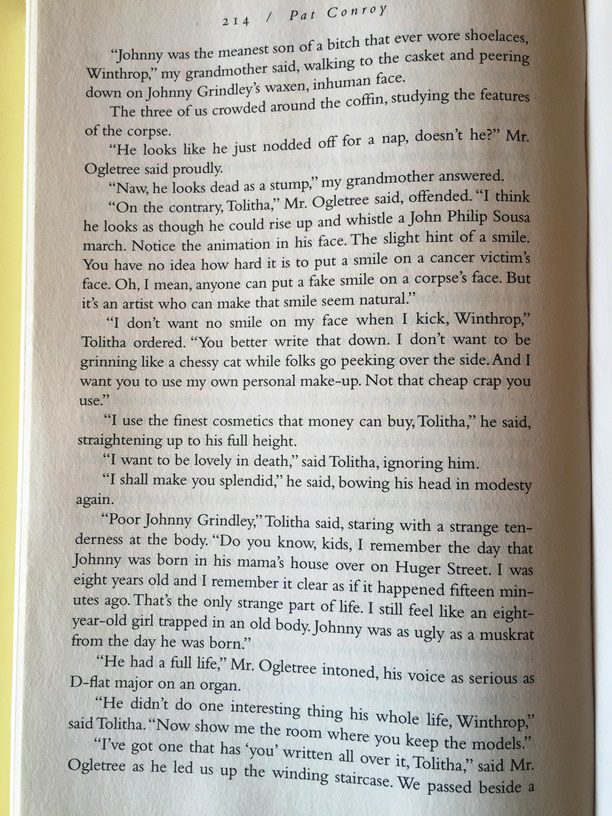CUT OUT DULL DIALOGUE
FREE SAMPLE LESSON FROM

The free sample lesson below is just one of numerous free lessons you'll soon be able to enjoy from WRITING GREAT DIALOGUE.
You'll have a chance to "kick the tires" before enrolling in the full master class.
Both the additional sample lessons and the master class are coming soon!
Shall I notify you when the free sample course is available?
I won't send spam—I promise!
CUT OUT DULL DIALOGUE
Dialogue should either advance your story or reveal character. Or both.
I've reviewed a lot of manuscripts over the past ten years, and a common issue I see is the use of dull dialogue.
Why is it dull?
Because writers mistakenly think that capturing authentic, everyday conversation makes for good dialogue. Rarely is that true. Real talk can be boring! If you were to read a transcription of a real conversation - even if the subject matter is fascinating - it often sounds completely absurd. Real talk can be disjointed, long-winded, redundant and unfocused.
Alfred Hitchcock said something about how a good story is “life, with the dull parts taken out.” Dialogue is no different.
What does dull dialogue look like?
"Hey, Celia, how's it going?"
"Pretty good, Jake, and you?"
"Can't complain, can't complain. Great weather, huh?"
"Like you said, can't complain. Hey, did you hear about ... oh, what's her name? You know, the woman from, uh, what's her name? English class. She, uh, you know, the one who always wears those sweaters?"
"The one who sits in the back?"
"No, no, the one on the side, by the, uh, on the door side, right, with the big sweaters?"
Get the idea?
HOW'S THIS FOR DULL?
Capturing how we really talk is not, therefore, the objective. We're looking instead to write dialogue that artfully deceives the reader into believing the talk is authentic; it has to feel and sound believable, even though—ironically—it's not.
Done properly, good dialogue will either move your story forward or flesh out your characters, or both.
The best way to know what makes for dull dialogue is to study great dialogue.
Pat Conroy, author of The Prince of Tides, (a novel I highly recommend) is a master of dialogue.
ASSIGNMENT #1
Read this page of dialogue from The Prince of Tides.
While reading, think about what you learn about the characters of Tolitha/grandmother, and Mr. Ogletree. What does their dialogue reveal about them? Share your thoughts in the comments section, if you wish.

Dialogue can also be used to advance the story. Here's an example of how that's done:
"Jake?"
Jake, still scrolling through the photos on his phone, lifted his chin to let Celia know he'd heard her.
"Remember that woman in English class? The one who always wore those sweaters? Oh, it doesn't matter! I just need you to know she told me about you."
"What about me?"
"She saw you, Jake."
Jake, annoyed, finally looked right at Celia, and held out a hand as if to say "what?"
"She saw you pick up that wallet outside the 7-11. You took the money, Jake. You tossed the wallet back."
Jake lowered his head and rubbed a hand across the back of his neck.
"And you think I should have done what? Been some kind of good Samaritan, some kind of Mister Nice Guy who thinks the dumb ass who dropped his wallet must need that sixty-two bucks more than I do? I've been telling you and telling you—I'm not that guy, Cee, I'm just not."
From this dialogue we can tell that Jake and "Cee" are intimate in some way (siblings, lovers, friends), and that Celia is in denial about who Jake really is. We can also see that the revelation about Jake's theft is going to change something in their relationship, and that therefore the story is moving into new territory. Maybe they'll become estranged, maybe Celia will report him, maybe she'll go back into denial, which will annoy Jake ... in any case, the dialogue moves the story forward.
ASSIGNMENT #2
Take a look at five pages of your own work that contains dialogue, and answer these questions:
—Which dialogue on these pages sounds too much like real speech?
—Which pieces of dialogue either reveal character or advance the story?
—What bits can you safely cut out without losing anything of value?
ASSIGNMENT #3
Write a paragraph of dull dialogue.
Now, using the same characters from the dull dialogue paragraph, write a paragraph of dialogue that reveals character or advances the story, or both.
Share what you wish from each of these three assignments in the comments section below.
IF YOU ENJOYED THIS FREE SAMPLE, SIGN UP FOR MORE FREE LESSONS, COMING SOON
Shall I notify you when the free sample course is available?
I won't send spam—I promise!
2 Comments
G. David Thayer
April 29, 2017The page from Pat Conroy’s novel certainly reveals a great deal about the differences between Tolitha and Mr. Ogletree, but one thing waved a red flag right in my face: What the bloody hell is serious about D-flat major on an organ? I’ve seen some strange metaphors in my time, but this one stands out as odd.
I might have written something like, “his voice as serious as a Sunday sermon.” Now that’s serious! (Not to mention it has a lot more prosody to it.)
BTW, I’m still hanging in there trying to get through the previous class on editing. I’ve been so busy applying what I learned to the novella I’m working on that I haven’t gotten back into the lessons much lately. –David
jdempsey
April 29, 2017Hey David—I love that metaphor! Take a listen: https://www.youtube.com/watch?v=7nMX973ZSjY.
A Sunday sermon need not always be serious—so much depends on who’s doing the sermonizing, no?
No worries about getting back to the lessons; they’ll be there waiting for your when you’re ready. Applying what you’re learning is far more important!
You must be logged in to post a comment.